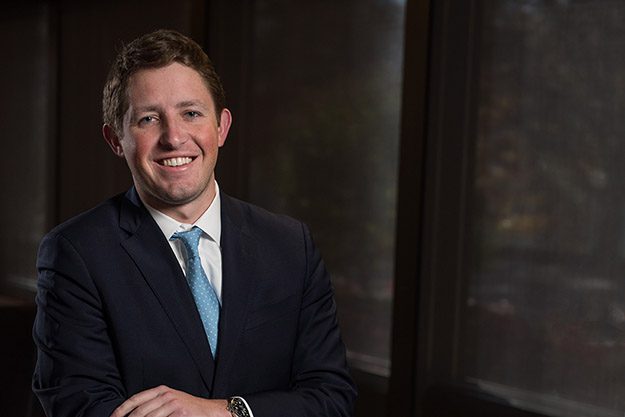Article
Resources
Article
Labor Update: What Got Our Attention in the Past Three Months
There has been a lot of labor activity in the past three months. President Biden announced the two appointees who would join National Labor Relations Board Chair Lauren McFerran to create a majority of Democrats on the Board. President Biden nominated Gwynne Wilcox to fill an existing vacancy. Ms. Wilcox is a senior partner at Levy Ratner, a New York City firm that represents labor unions and employees. Ms. Wilcox also serves as associate general counsel for the largest Local of the SEIU. President Biden additionally nominated David Prouty, the general counsel for SEIU Labor 32BJ, to replace Member Emanuel when his term expires on August 27. Once confirmed, there will be a Democratic voting majority on the Board.
Besides these nominations, here are five labor developments that caught our attention in the past three months:
Jennifer Abruzzo Begins Service as NLRB General Counsel
On July 12, 2021, the Senate confirmed President Biden's appointment of Jennifer Abruzzo to serve as NLRB General Counsel. GC Abruzzo replaces acting GC Peter Sung Ohr who was designated by President Biden to serve as acting GC following his controversial decision to depart from past practice on inauguration day and terminate the service of NLRB General Counsel Peter Robb before the end of his four-year term. GC Robb was named to that position by former President Trump. Ms. Abruzzo began her service as General Counsel on July 22, and she is expected to confirm the controversial actions of the acting GC to overturn a number of enforcement directives issued by former GC Robb.
President Biden Directs Task Force to Promote Union Organizing
At the end of April, President Biden formed a new White House Task Force on Worker Organizing and Empowerment. Vice President Harris will chair the task force and the Secretary of Labor, Marty Walsh, will serve as the vice chair. By the end of October, the task force will: (1) identify which existing policies, programs, and practices can promote worker organizing and collective bargaining in the federal government; and (2) identify what policy changes are needed to achieve four goals: (i) leading by example by ensuring the federal government encourages worker organizing among its workforce; (ii) facilitating worker organizing nationwide, by mobilizing federal government policies to provide workers the opportunity to collectively bargain; (iii) increasing worker power in underserved communities by addressing challenges in jurisdictions with restrictive labor laws, in industries with heightened barriers to organization, and for women and people of color; and (iv) increasing union membership.
As we have discussed, the Protecting the Rights to Organize Act (the “PRO Act”) is unlikely to pass the Senate in its current form. However, Democrats may use the task force’s recommendations to tweak the PRO Act or introduce narrower legislation adopting some of the task force’s recommendations. In either event, employers should watch for the task force’s recommendations in October for a glimpse on the direction of labor laws affecting union organizing in the next four years.
Scabby Lives!
Unions use Scabby the Rat, a large inflatable in the shape of a menacing rat, during a strike and to protest neutral employers who do business with the primary employer with whom a union has a labor dispute. In past decisions, the Board held that a union’s use of inflatable rats does not violate the NLRA because the rats are different from a patrolled picket line and do not disrupt a secondary employer’s operations. The Board’s former General Counsel, Peter Robb, argued the Board should overrule these prior decisions because the inflatable rats unlawfully threatened, coerced, or restrained a neutral employer when used to protest that employer’s business with a primary employer.
In a recent decision considering whether a union violated the NLRA when it used Scabby to protest an employer’s business with a primary employer, the Board sidestepped the issue. The Board concluded that, when Scabby is used as expressive activity intended to persuade the neutral employer’s customers, the possible infringement on the union’s First Amendment rights precluded the Board from finding Scabby violated the NLRA. The Board also reaffirmed its opinion that the inflatable rats, by themselves, are not threatening or coercive in violation of the NLRA. So, for now, unions will continue to lawfully use Scabby the Rat to protest employers who do business with employers with which they have a labor dispute.
The Supreme Court Says Law Requiring Union Access to Employer Property is Unconstitutional
In Cedar Point Nursery v. Hassid, 141 S. Ct. 2063 (2021), the Supreme Court of the United States ruled that a California rule requiring agricultural employers to give union organizers access to their property to organize employees was an unconstitutional taking. The Court’s decision did not interpret the NLRA, which does not apply to the agricultural workers. However, the Court suggested that federal law, which allows organizers to access an employer’s property to talk to employee in remote locations “beyond the reach of reasonable union efforts to communicate with them,” also may be an unconstitutional taking.
The Supreme Court’s decision is interesting because Democrats are advocating aggressively for legislation to promote union organizing while they have a slim majority in Congress. For example, some advocates argue that Congress should amend the NLRA to adopt the Board’s short-lived rule that an employer’s captive audience speeches are an unfair labor practice if the employer does not provide the union with equal time to respond on the employer’s private property. See Bonwit Teller, Inc., 96 NLRB 608 (1951); F.W. Woolworth Co., 102 NLRB 581 (1953); Livingston Shirt Corp., 107 NLRB 400 (1953).
The Supreme Court’s decision in Cedar Point does not mean laws giving unions equal time to respond to captive audience speeches are automatically unconstitutional. A taking is constitutional if the property owner receives “just compensation.” The Supreme Court remanded the question of how to remedy taking employers’ property for union speeches, including what is “just compensation” for the taking. The compensation for a union’s access to property to organize employees is likely trivial, but determining that amount (and who pays it) will likely doom any laws that try to provide unions with equal time to respond to captive audience speeches. Democrats may adopt a different tactic and make it an unfair labor practice for employers to discharge an employee who refuses to listen to speech advocating against union organizing.
Union Leaders have Conflicting Opinions on Vaccine Mandates
Last week, President Biden announced that federal workers and contractors (totaling approximately 11 million workers) must attest they have been vaccinated against COVID-19 or comply with new rules requiring masks, weekly testing, and other requirements designed to mitigate the spread of the virus. President Biden frequently highlights his relationship with labor, so you might expect unions would support these actions designed to protect employees and increase productivity after a year of layoffs, furloughs, and other negative economic consequences because of COVID-19. Instead, unions have taken different views on vaccine mandates.
Although AFL-CIO President Richard Trumka said he would support a vaccine mandate, other labor leaders have opposed mandates. For example, the International Association of Fire Fighters and American Federation of Teachers have opposed employer-mandated vaccination.
It appears most unions oppose employer-mandated vaccinations as interfering with a union’s role to negotiate these rules. Employers with employees represented by a union may not unilaterally require employees to get vaccinated depending on the terms of the parties’ collective bargaining agreement. Employers may need to bargain with the union regarding when, how, and which employees must be vaccinated, exceptions for vaccinations, and disciplinary action for employees who violate a vaccination mandate without an applicable excuse. For example, the Association of Flight Attendants negotiated an optional program providing extra vacation days for flight attendants who received the vaccine. Employers considering their options for requiring or incentivizing their unionized employees to get vaccinated should work with counsel to determine what decisions require bargaining with the union.



